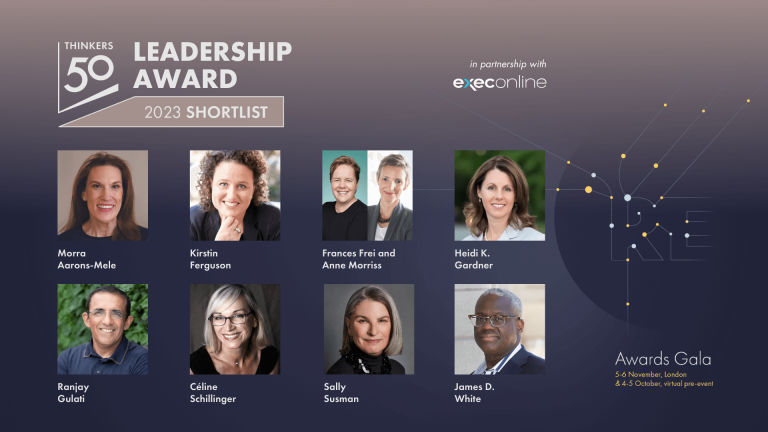

In 1984 executives at Coca-Cola were worried. The company appeared to be on the edge of a terrible precipice. Its number one place in the coke market appeared under genuine threat for the first time. Pepsi was catching up fast. Market share was slipping – Coca-Cola was reduced to a market share lead of just less than 5 percent. Coca-Cola’s ad spend was up but was having little effect. Pepsi had come up with a good ad play for a number two in the market: the Pepsi Challenge. The Challenge had led to a sharp increase in Pepsi’s market share – up an immediate 8 percent. Trouble was, the Pepsi Challenge was more than a gimmick. In blind tests it seemed that drinkers actually did prefer Pepsi to Coca-Cola. This was not good news for the Coca-Cola marketing team.
Faced with these problems, Coca-Cola charged Sergio Zyman with a project to consider the previously unthinkable: changing the drink’s recipe.
In September 1984 the Coca-Cola team came up with a recipe which, in blind tests, kept on winning. This, the company concluded, was the answer. However, it conveniently ignored consistently negative market research about the possibility of changing the drink’s formula. Coca-Cola went for it. On 23 April 1985 New Coke was announced – on St George’s Day, the dragon came out to slay Pepsi.
New Coke was claimed to be smoother, sweeter and preferable to the old version. This conveniently overlooked the fact that the old version was selling in many millions every day of the week. To call this the marketing own-goal of the century would be to understate the effect only slightly. Coke was faced with a barrage of criticism. On the other hand, its arch-rival Pepsi could barely contain its glee – indeed, it quickly produced advertising which was extremely gleeful, rubbing in the fact that ‘the real thing’ remained unchanged.
Realizing that its move had been disastrous, Coke back-tracked and, after ninety days, reintroduced the original coke. It has not been tinkered with since.
So, what does this salutary saccharined tale have to offer twenty-first century leaders?
First, if it works, don’t change it without a very good reason. There was more to Coca-Cola than the recipe. It stood for something. And the company underestimated how strong this bond was.
Second, learn, don’t blame. It was notable that the Coca-Cola top management team remained in place and did so for a number of years. Heads did not roll. Indeed, Robert Goizueta, the CEO, received $1.7 million in salary and bonuses. The company’s annual statement noted ‘singular courage, wisdom and commitment in making certain decisions’. It might have been different if the company had lost money. The company’s stock actually reached an all-time high at the beginning of 1986.
Third, we all make mistakes. Coca-Cola recognized its folly quickly and acted decisively. Its followers forgave.
The Coke story is a business classic, but it came back to us when Stuart was recounting his experiences over twenty-three days in the company of four other middle-aged men on a 38-foot yacht crossing the Atlantic Ocean. Since returning, people have been asking him what he learned along the way. It is interesting – and a relatively recent phenomenon – that you are expected to learn something in any unusual experience. The experience in itself is not enough; you must have actively learned something from it. As one of his crewmates (a CEO, as it turns out) observed:
‘Twenty odd days on a boat in the middle of nothingness and I still haven’t figured out the meaning of life.’
You do, of course, learn things in any twenty-three-day period in life and on a boat in the middle of the ocean. But the process of learning is as ad hoc as it normally is: learning is gradually acquired rather than arriving in dramatic and sizeable lightning bolts. Learning happens and evolves.
It is your willingness to accept and embrace the slowness and granularity of the process which is key.
This also applied to the brand of leadership Stuart encountered while on board. The captain was a former headteacher. His modus operandi was to allow you to give something a try and then intercede with some helpful advice as the rope failed to move, the sail continued to flap or the gas didn’t ignite.
Good theory, but it is amazing how challenging that approach actually is. It feels like low-key, educational leadership, but for the person being given the opportunity to try something and, in Stuart’s case, almost certainly fail to do it, the pressure is intense. He could feel the faith the captain was putting in him every time. He wanted to be able to do it. And he could feel the specter of failure hovering.
The truth is that Stuart is not used to failure. His adult life has been spent deliberately putting himself in situations where he can utilize the skills and insights he has. It is good, he knows, to get out of your comfort zone. But that is not how most people spend their personal and professional lives. You don’t want to be the one person who can’t do something, you don’t want to repeatedly get things wrong, you don’t want to fail – especially in front of others.
His captain’s leadership also had an interesting safety mechanism. When it was suggested that he might do something – let a reef out so the sail was bigger and the boat would go faster, put the genoa up, change tack and so on – his reaction was often to say no. ‘Good idea, but let’s wait twenty minutes and see what the wind is doing then,’ he would say, in a positively-negative tone honed in the classroom.
When he said such things the crew would glance at each other, roll their eyes slightly and think to themselves that the captain was a great guy but not a fearless and quick decision maker.
They were, of course, wrong. After twenty minutes, time after time, the situation was completely different from the one they had imagined. Taking a reef out or putting a sail up would have been ill advised and sometimes dangerous.
Partly this was down to experience. The captain had been in more similar situations so he was able to make the right call. But, more importantly, the captain repeatedly got decisions right because he pressed pause and went with the status quo while he weighed things up.
Of course, the natural suspicion is that this brand of slow leadership wouldn’t work in the fast-moving organizational world. But the weather changes very quickly in the ocean. Before making any decision, a leader is well advised to press pause and consider whether the change will definitely improve performance and to consider the motives of those advising change. Slow leadership is often the quickest way forward – ask Coke.
Stuart is also author of a collection of poems entitled Atlantic Crossing (St Giles Poets, 2015).

Thinkers50 Limited
The Studio
Highfield Lane
Wargrave RG10 8PZ
United Kingdom

Thinkers50 Limited
The Studio
Highfield Lane
Wargrave RG10 8PZ
United Kingdom

| Cookie | Duration | Description |
|---|---|---|
| LANG | 9 hours | Linkedin set this cookie to set user's preferred language. |
| nsid | session | This cookie is set by the provider PayPal to enable the PayPal payment service in the website. |
| sp_landing | 1 day | The sp_landing is set by Spotify to implement audio content from Spotify on the website and also registers information on user interaction related to the audio content. |
| sp_t | 1 year | The sp_t cookie is set by Spotify to implement audio content from Spotify on the website and also registers information on user interaction related to the audio content. |
| tsrce | 3 days | PayPal sets this cookie to enable the PayPal payment service in the website. |
| x-pp-s | session | PayPal sets this cookie to process payments on the site. |
| __cf_bm | 30 minutes | This cookie, set by Cloudflare, is used to support Cloudflare Bot Management. |
| Cookie | Duration | Description |
|---|---|---|
| l7_az | 30 minutes | This cookie is necessary for the PayPal login-function on the website. |
| Cookie | Duration | Description |
|---|---|---|
| CONSENT | 2 years | YouTube sets this cookie via embedded youtube-videos and registers anonymous statistical data. |
| _ga | 2 years | The _ga cookie, installed by Google Analytics, calculates visitor, session and campaign data and also keeps track of site usage for the site's analytics report. The cookie stores information anonymously and assigns a randomly generated number to recognize unique visitors. |
| _gat_gtag_UA_10408481_1 | 1 minute | Set by Google to distinguish users. |
| _ga_ZP8HQ8RZXS | 2 years | This cookie is installed by Google Analytics. |
| _gid | 1 day | Installed by Google Analytics, _gid cookie stores information on how visitors use a website, while also creating an analytics report of the website's performance. Some of the data that are collected include the number of visitors, their source, and the pages they visit anonymously. |
| Cookie | Duration | Description |
|---|---|---|
| NID | 6 months | NID cookie, set by Google, is used for advertising purposes; to limit the number of times the user sees an ad, to mute unwanted ads, and to measure the effectiveness of ads. |
| test_cookie | 15 minutes | The test_cookie is set by doubleclick.net and is used to determine if the user's browser supports cookies. |
| VISITOR_INFO1_LIVE | 5 months 27 days | A cookie set by YouTube to measure bandwidth that determines whether the user gets the new or old player interface. |
| YSC | session | YSC cookie is set by Youtube and is used to track the views of embedded videos on Youtube pages. |
| yt-remote-connected-devices | never | YouTube sets this cookie to store the video preferences of the user using embedded YouTube video. |
| yt-remote-device-id | never | YouTube sets this cookie to store the video preferences of the user using embedded YouTube video. |
| yt.innertube::nextId | never | This cookie, set by YouTube, registers a unique ID to store data on what videos from YouTube the user has seen. |
| yt.innertube::requests | never | This cookie, set by YouTube, registers a unique ID to store data on what videos from YouTube the user has seen. |
| Cookie | Duration | Description |
|---|---|---|
| DEVICE_INFO | 5 months 27 days | No description |
| loglevel | never | No description available. |
| m | 2 years | No description available. |
Thinkers50 Limited has updated its Privacy Policy on 28 March 2024 with several amendments and additions to the previous version, to fully incorporate to the text information required by current applicable date protection regulation. Processing of the personal data of Thinkers50’s customers, potential customers and other stakeholders has not been changed essentially, but the texts have been clarified and amended to give more detailed information of the processing activities.